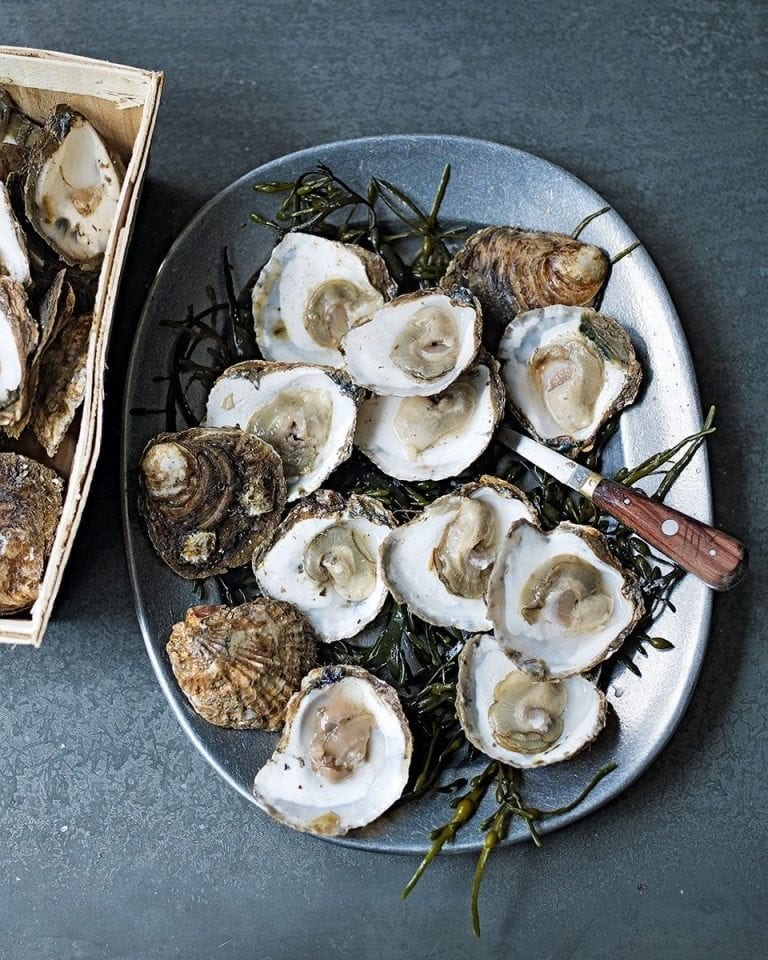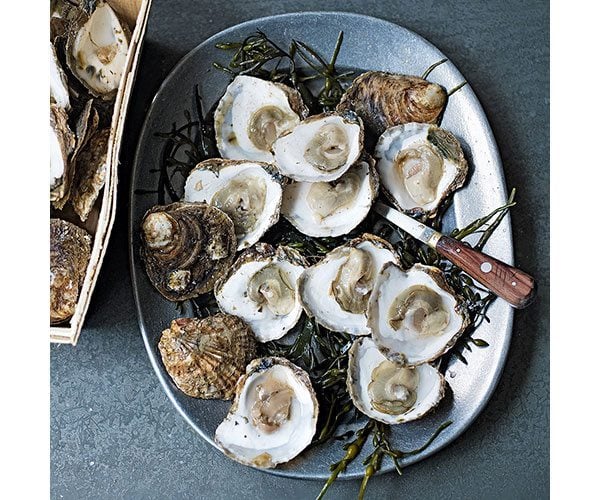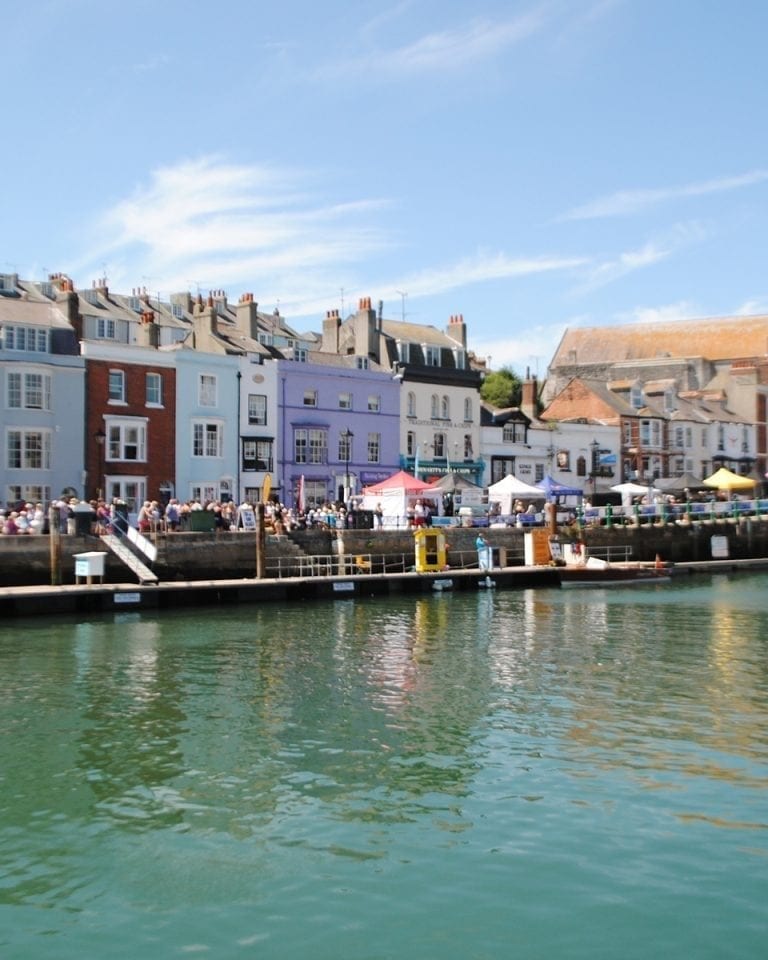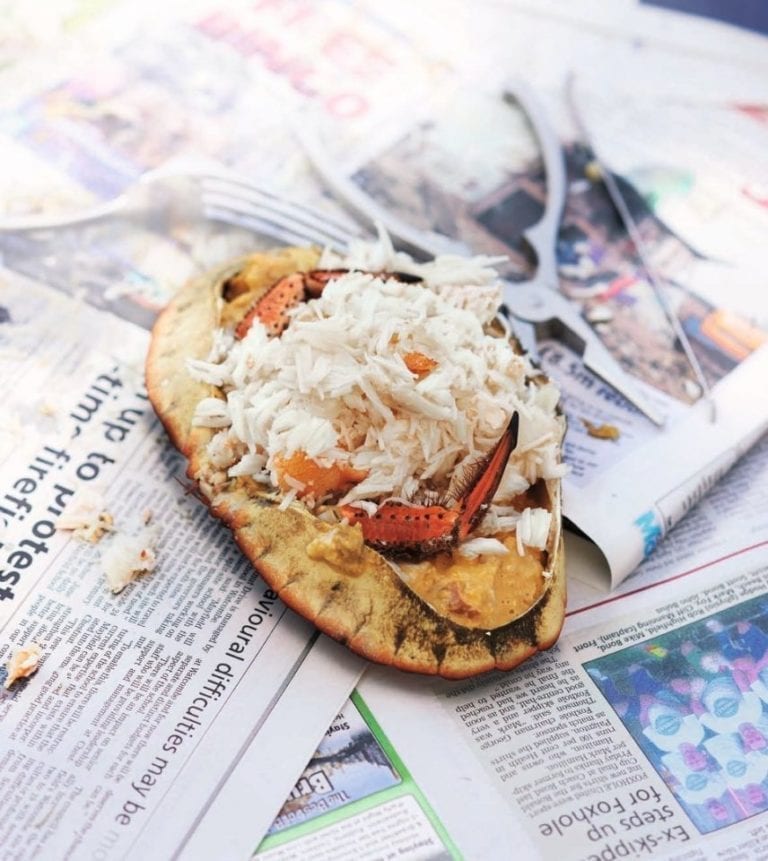The rant: Why do we send so much of our seafood abroad?
The best seafood in the world, from lobsters to langoustines and crab, comes from British waters.
It’s exported and revered all over the globe – yet we feed on cheap imports.
It’s time we shelled out for our native bounty, says broadcaster and writer Paul Peacock.

There used to be an old lady who ran a fishmonger in Holyhead selling beautiful seafood caught in the bays and out in the Irish Sea. My favourite was the good old lobster, which was lifted from the water at Silver Bay, travelling a few miles to Holyhead, where it was sold to the fishmonger, then cooked and dressed for eager taste buds to enjoy.
These days the supermarket in Holyhead also sells lobster – not from the cool, nutritious waters off Anglesey but from Canada. The North American species is less tasty, and most of what we get over here is caught in factory ships, frozen and shipped to Hull, from where it travels in refrigerated vans all over the UK. Even my local Chinese takeaway in Rossendale, Lancashire (which is next door to a fishmonger), gets its lobsters from Canada, via Chi Yip cash and carry in Manchester.
It seems locally caught lobster just isn’t financially attractive, even though it’s so much tastier, and fishing and selling locally is so much better for the environment (how much extra carbon dioxide is pumped into the atmosphere to bring American lobbies to our shops?). A staggering 70 per cent (by value) of the seafood that enters the supply chain in the UK is imported, or landed by foreign ships, according to Seafish, the public body that promotes the UK seafood industry. Meanwhile, we export much of our domestic catch, which gains a higher value in export markets. France and the US were top export destinations in 2015, followed by Spain, Ireland, Italy, China, the Netherlands and Germany. Silly us…
Illustrating the point, I had a heated discussion with a fellow Brit abroad in Spain about pilchards. She was tucking into her holiday Catalan-style pilchards, all tomato and garlic and glasses of rioja. The pilchards, though, were caught by huge Spanish fishing vessels in UK waters, their owners having purchased fishing quotas from British businesses who can’t sell the fish locally. I asked her if she often ate pilchards at home. “Oh no, I don’t like them,” she replied indignantly. I couldn’t convince her that these were the same fish you would get in the UK, that Cornish stargazy pie was cooked with pilchard heads searching the heavens or that, indeed, sardines were really just smaller pilchards. “I only like Spanish pilchards,” she stubbornly insisted.
One of my favourite pastimes as a boy was to stand by the seafood stall at Southport beach and take in the smell of the place. I’d compete with the seagulls for titbits. Dressed crabs, cockles and mussels, potted shrimp in mace-laced butter, shrimps that came in pints, Dublin Bay prawns, baby lobster, rollmops… And then, to take home (and stink out the holiday caravan), kippers and herrings.Not any more. In Southport you can get a hot dog, and chips with vinegary ketchup. You have to travel as far north as Morecambe or south to Liverpool to find good fish stalls. Where has all the seaside seafood gone? The answer, I’m afraid, is it’s not wanted any more. People are put off by the aroma, the look, the thought of it. How quickly we abandon our past. Culturally, it seems, we’re more obsessed with filling our bellies, then moving on, than filling our hearts and minds with home-grown beauty, aesthetics; the kind of riches that aren’t financial.
Our seas and beaches certainly are rich, if under-appreciated at home. Our waters are cool and well oxygenated, the sea is turbulent, the bed constantly churned to give a rich supply of nutrients. It’s said the Romans came here for our oysters, and I can believe it. Of all the cockles dug up in Morecambe Bay, 99 per cent go to the Far East (I eat the rest), after being bottled in Ireland. Our white fish travels the world, and our oily fish graces the tables of Mediterranean villas. Our salted, pickled and smoked seafood is the world’s best.
Every market in the world prizes seafood caught in the UK. Our lobsters knock the spots off everyone else’s and our pilchards are oilier than a wartime haircut (and richer in nutrients). Yet too many of us are blind to its beauties and refuse to eat it. It’s a sad fact that what you don’t value, you lose.
Do you agree with Paul or do you take a different view? Let us know in the comments below.
Subscribe to our magazine
Food stories, skills and tested recipes, straight to your door... Enjoy 5 issues for just £5 with our special introductory offer.
Subscribe
Unleash your inner chef
Looking for inspiration? Receive the latest recipes with our newsletter


